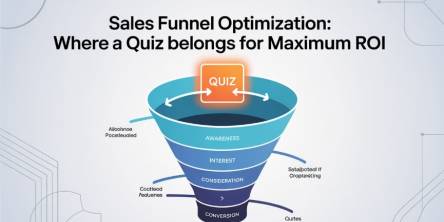Microsoft Power Apps: Why it is the Ideal to Build Business Apps in 2022

As technologies continue to evolve, businesses are starting to feel a growing need for solutions that can help them keep up with the changing circumstances in the market as well as the distinctive needs of their customers. Microsoft Power Apps is rapidly gaining popularity as the top tool for such a scenario, for it enables rapid app development sans the fuss associated with the traditional development process.
It is fundamentally a development platform for mobile and web apps that allows “citizen developers” to reach capabilities. It was once only reserved for high-end development tools. And, what’s more, PowerApps makes it quite easy to learn. It allows users to swiftly take charge of making the correct decisions when it comes to structuring.
. Listed below are some of the other benefits that Power Apps offers to companies.
1. Low-code development: Perhaps one of the most celebrated features of Power Apps is the fact that it necessitates low to no coding for the development of top-notch apps. This means that companies do not need to hire expensive development teams and still be able to quickly deploy robust apps.
2. Intelligence automation: A crucial feature Power Apps brings to the table is a set of automation tools that can assist companies in a variety of aspects such as data sharing, customer relations management, task monitoring, etc.
3. Quick development: Since Power Apps is underpinned by a simple system, making it easier for companies to develop their apps lightning-quick. See, with Power Apps, companies gain a collection of templates of features, functionalities, etc. which can be added to the intended app by just dragging and dropping the needed functionality into the development canvas.
4. High-levels of security: The Power Apps suite allows companies to use Common Data Services via the role-based security model. As a result, the app’s users can set up security roles based on relevant access permissions. This helps protect businesses against myriad security-related vulnerabilities. Additionally, companies can ensure that employees can access only the data relevant to their job roles.
5. Cost efficiency: The conventional methods for app development are notoriously expensive and time-consuming. This is not a problem with Power Apps which empowers companies to quickly build highly capable customized apps for their businesses albeit without humongous investments.
Let us wrap this up with a handful of examples of some Power Apps-based apps.
1. Employee onboarding apps: Onboarding new employees is a complex but a critically-important part of any organization. The process can be made much easier with the help of Power Apps-driven employee onboarding employees.
2. Hazard reporting apps: For companies that often have employees in the field, it is imperative to keep a close eye on any hazards the staff may encounter. Power Apps can be used to build hazard reporting apps for companies.
3. Shift management apps: Countless companies all over the world also use Power Apps-based apps to efficiently manage their employees’ shifts.
Though a relatively new arrival on the scene, the Microsoft Power Apps suite has proven to be an invaluable tool in the arsenal of countless modern companies across the broad spectrum of industries around the world. It not only empowers companies to easily build tailored apps for their business, but also significantly cuts down the timelines involved in the design, development, and deployment of such apps. Let us not forget it also makes app development quite affordable, thus rendering Power Apps especially practical for small-scale businesses. So, if you too are considering bringing this mighty powerful Microsoft offering into the fold, we recommend you start by looking for a trusted provider of Power Apps consulting services.
Similar Articles
In 2026, Microsoft Excel continues to power the U.S. business ecosystem, supporting over 80% of financial modeling, 70% of operational reporting, and nearly 65% of analyst-driven decision workflows across enterprises.
The rapidly growing volume and speed of digital transactions have had a whole lot of implications for businesses
We live in the age of cloud computing. That's plain to see. However, what may escape many are the operational and financial challenges of managing multiple independent clusters.
Times have changed and how! Take modern technology and the fast-paced digital economy, it is driving. Given the market conditions, any company's infrastructure has become more than just a technical detail.
It has been for everyone to see that the modern digital economy is distinguished by high volume, real-time financial transactions.
Business success has become reliant on efficiency and agility of the underlying technology infrastructure. Clearly, companies now depend on cloud computing to provide seamless services while managing exponential data growth.
Hospitals operate in environments where availability and patient safety are paramount at all times. As medical supply chains expand and regulatory oversight becomes more demanding, manual tracking methods introduce delays and risk.
Every sales funnel has one core goal: turn attention into revenue as efficiently as possible. Yet many funnels leak value at critical stages—visitors bounce, leads go cold, and sales teams chase prospects who were never a good fit.
Decentralized Finance (DeFi) has transformed how users earn passive income through blockchain-based financial systems. Among its most popular use cases,









